Are you making these 5 damaging vinyl floor cleaning mistakes? Professional cleaners reveal the simple but effective methods they use instead
Prolong the life of your vinyl floors and spruce them up safely
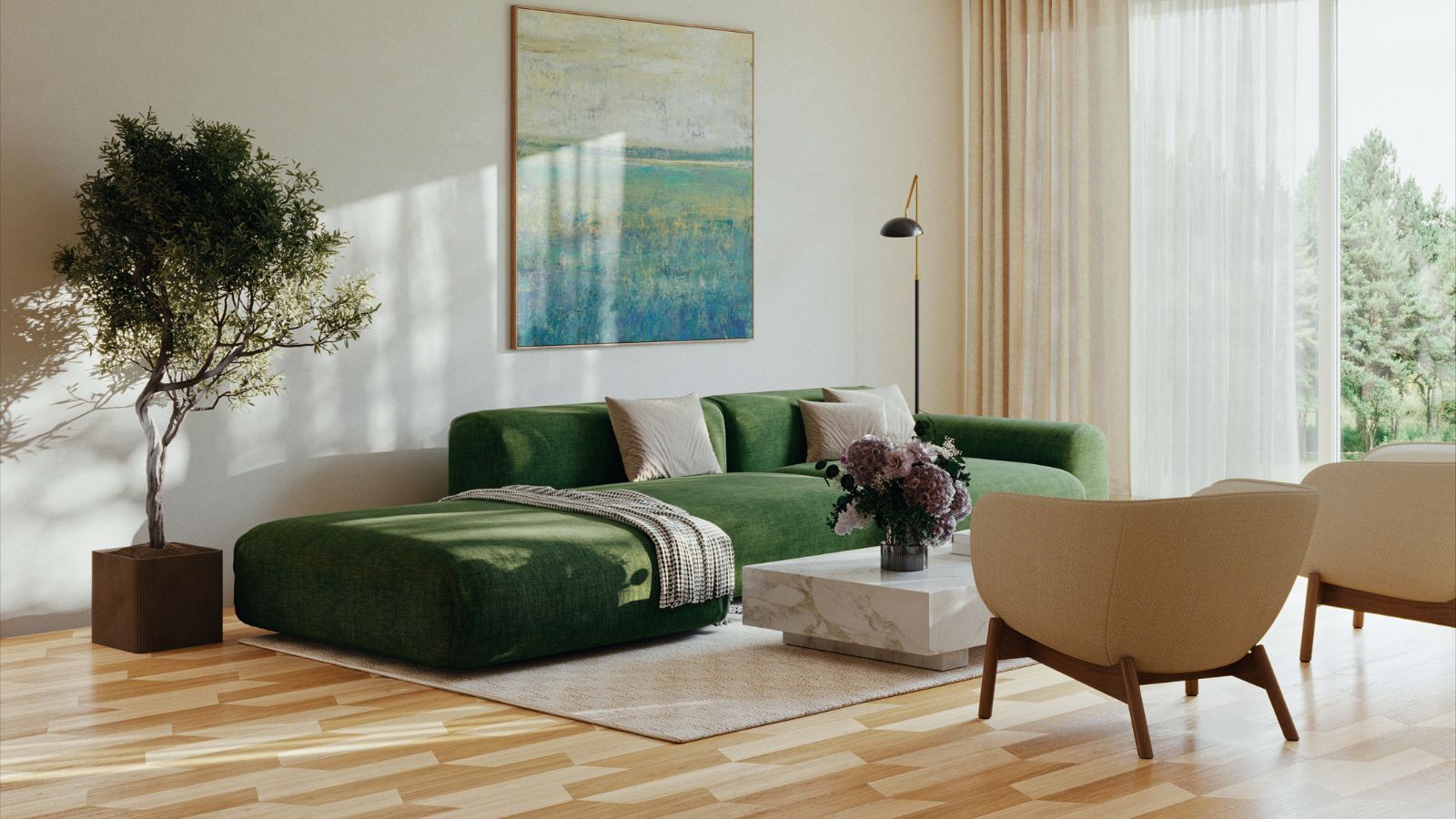
Vinyl is an ever-popular flooring choice thanks to its incredible durability and moisture protection, but it still needs some TLC. Making vinyl floor cleaning mistakes can dull, warp or damage its surface over time.
Knowing how to clean vinyl floors well means knowing what's safe to use on it, including non-toxic alternatives, say our cleaning pros. Avoid using harsh chemicals, mopping with too much water and using the wrong type of vacuum if you want to protect your flooring investment.
5 common mistakes to avoid when cleaning vinyl floors
1. Using harsh chemicals
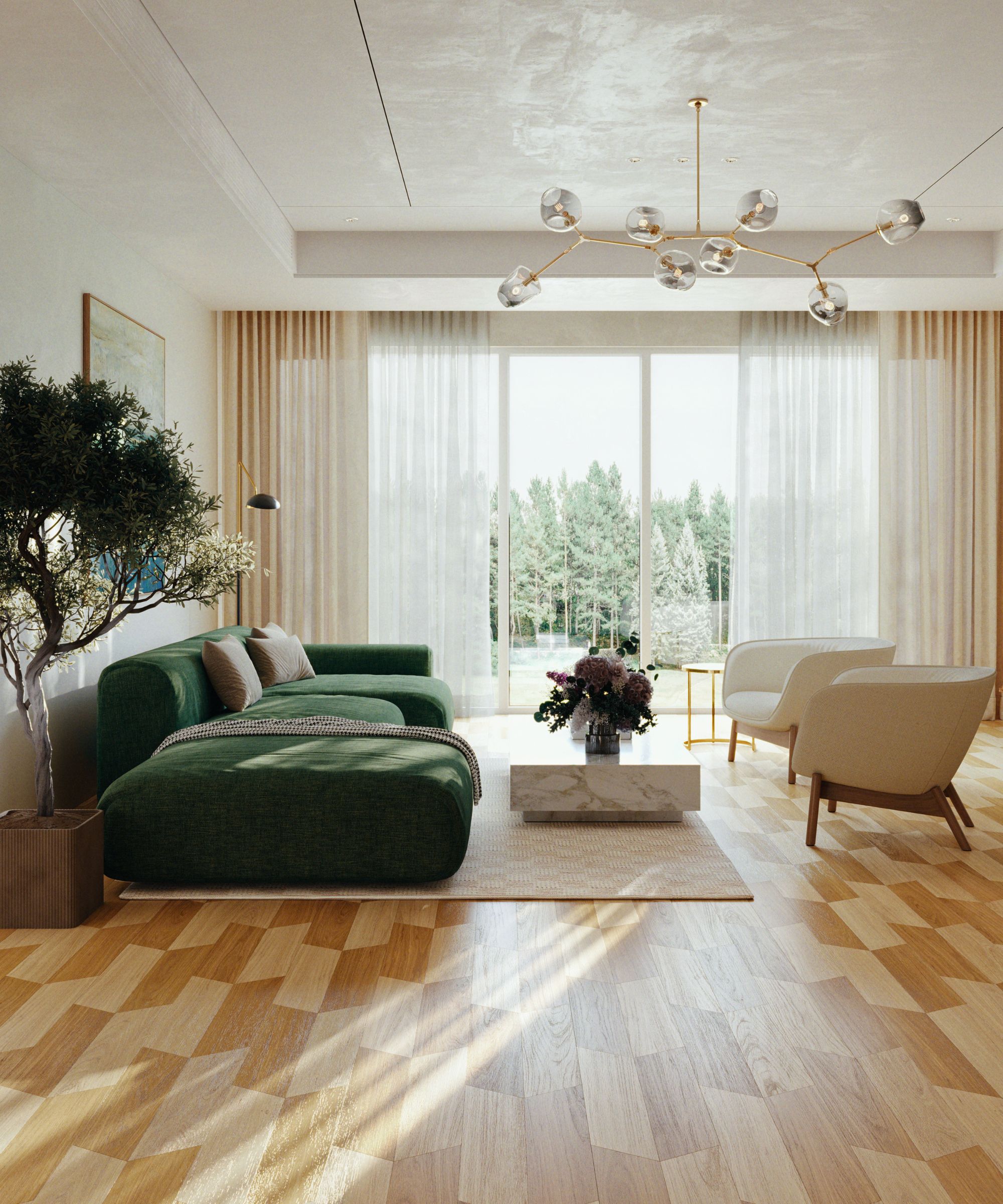
Harsh chemicals can damage vinyl floors over time
It’s tempting to reach for strong cleaning agents like bleach or ammonia to tackle tough stains, but these can easily do more harm than good. It might not happen right in front of your eyes, but using these will gradually ruin your vinyl flooring's finish, so it is safer to avoid having harsh chemicals in your cleaning kit.
'The number one mistake I see people make when cleaning vinyl floors is regularly using harsh chemicals,' says Taylor Riley, a cleaning specialist and partner at GermSmart. 'Over time, harsh chemicals like bleach will break down the protective coating on the floors, leading to dullness or fading. We usually get called once the vinyl flooring starts becoming noticeably dull – and the majority of the time, harsh chemicals were the go-to choice.'
It's one of the things never to clean with bleach.
Taylor instead recommends using a pH-neutral cleaner specifically designed for vinyl. 'Bona's multi-surface cleaner [at Amazon] is safe on vinyl and readily available almost anywhere,' he says. 'Another favorite of ours is the Zep Neutral pH Industrial Floor Cleaner [at Walmart]. It’s concentrated, so a gallon will last quite a while.'
We've spoken to many toxicologists and professional cleaners and they're always big fans of non-toxic DIY bathroom cleaners and alternative ways to clean bathroom floors without harsh chemicals. They not only protect your home and health, but the planet too, making non-toxic cleaners a great way to be more sustainable at home.
Mark Lumpkin, property and construction expert from STR Cribs adds, 'Even common household vinegar is a surprise misconception. Its acidic nature can etch the surface if used frequently and dull its shine.
'Instead of harsh chemicals, it’s recommended to use pH-neutral cleaners in combination with a microfiber mop [like this top-rated mop at QVC] that will gently lift dirt but not scratch the surface.'
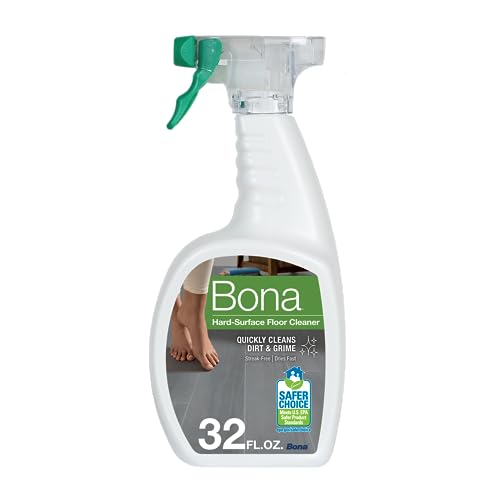
A natural formula that's safe on vinyl, in a spray bottle that allows for easier cleaning and can be filled up with a Bona Economy Refill (at Amazon).
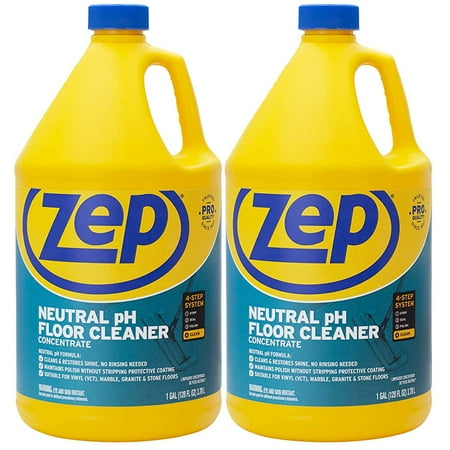
Cleaning pro Mark Lambidge recommends Zep's Neutral pH Floor Cleaner as the concentrated formula will be enough to safely clean your vinyl floors for months.
 Top rated
Top rated
One of the highest rated mops on QVC, the E-Cloth can clean hard floors using just clean water, or any natural cleaning solution that's safe on your vinyl floors.
2. Always trusting baking soda
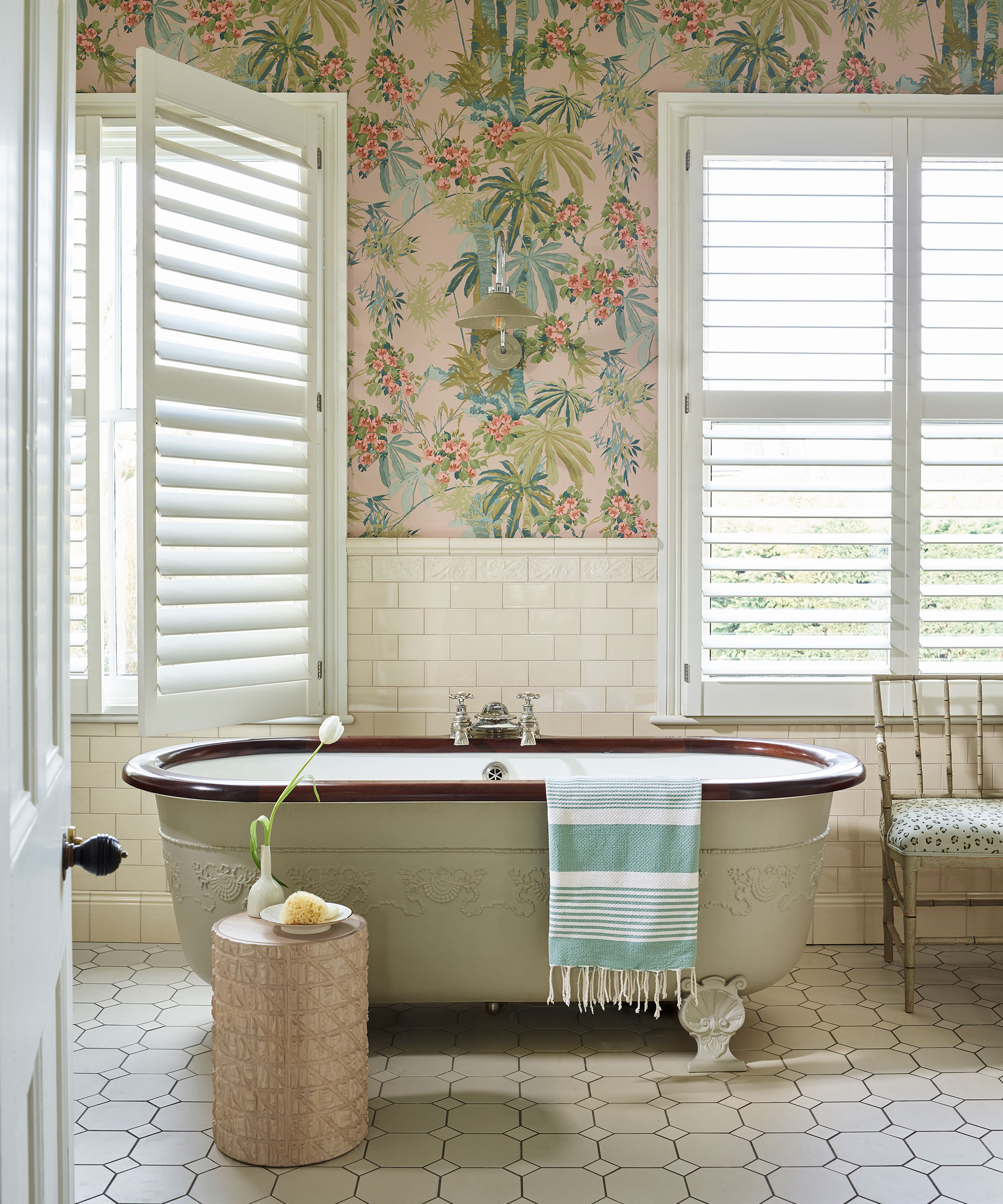
Vinyl floors work well in bathrooms, kitchens and other high traffic areas of the home, and are easy to clean
Baking soda is often praised as a natural cleaning solution for its gentle abrasion, and it certainly works wonders in some instances like using baking soda in laundry or cleaning carpet with baking soda. But when it comes to vinyl floors, it can be too abrasive.
'For tougher stains on vinyl, you can occasionally try baking soda mixed with warm water,' says Paul Hambidge, managing director at Factory Direct Flooring. 'But don’t rely on this as your regular, go-to cleaning method. It can damage the clear layer that protects vinyl flooring and make it appear cloudy.'
For a safer, natural alternative, opt for the vinyl-safe cleaners suggested above, and when it comes to stain removal, Paul suggests a mix of white vinegar and water: 'Our experiment showed this method cut germs on vinyl by 94%. It also means you’re using fewer chemicals in your cleaning routine, and it’s pretty cheap too.'
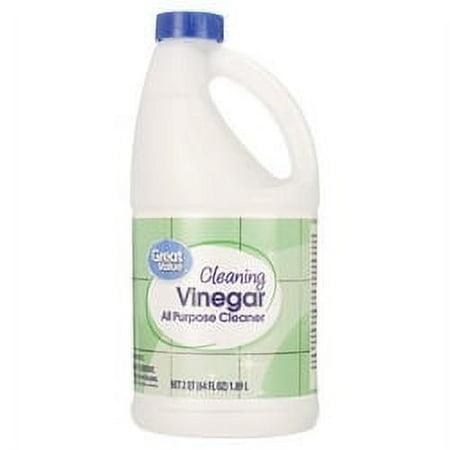
It's always smart to have some white vinegar in the house, whether you're cleaning grease from your air fryer or using it with baking soda to clean the house.
3. Cleaning with laundry detergent
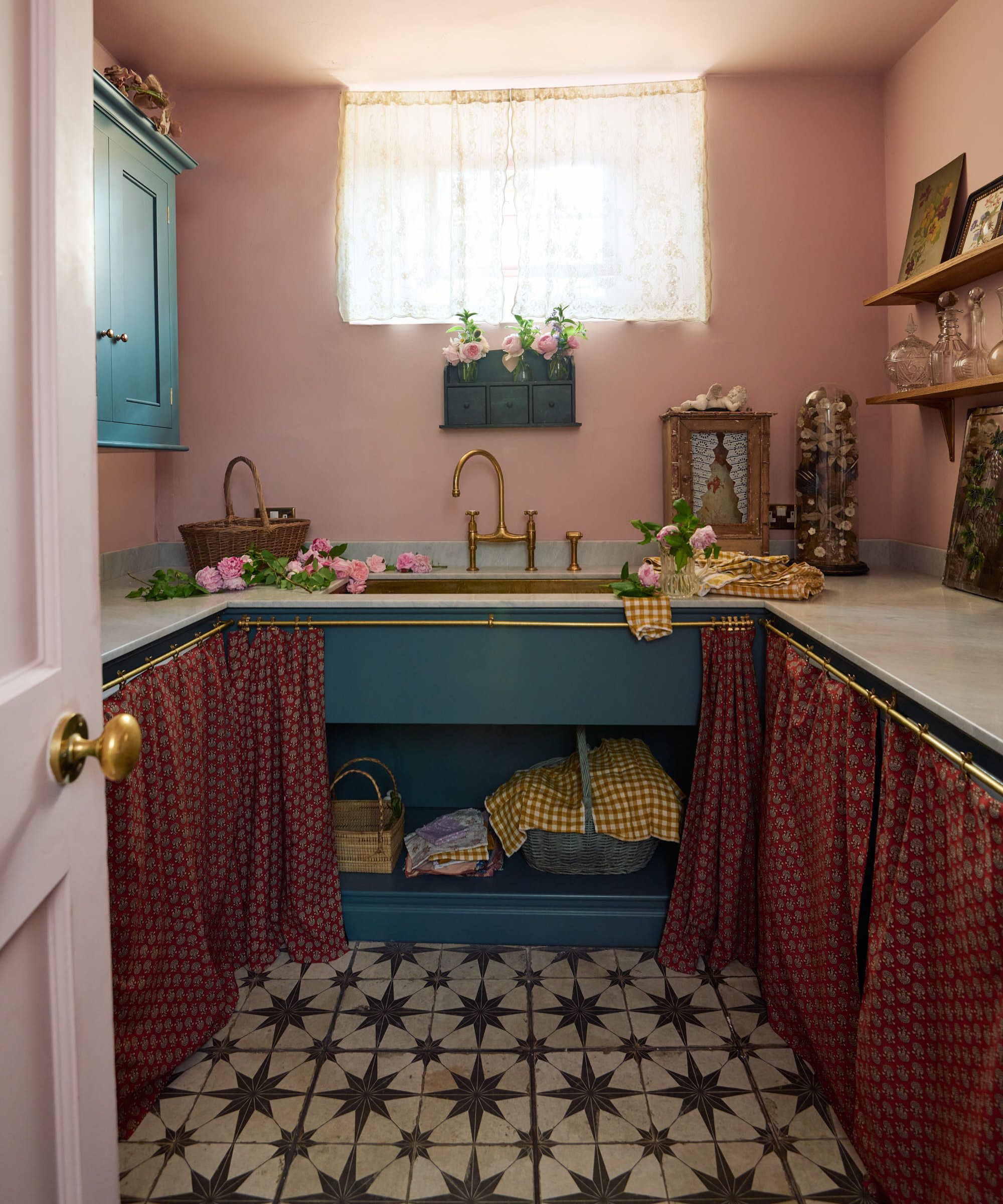
'We’ve seen fabric conditioner being lauded as a ‘hack’ for keeping surfaces dust-free, but it’s something that should be avoided when cleaning your floors,' warns Paul.
'Any soap scum left on your floor should be wiped away thoroughly; otherwise, it could develop a ‘film’ that only collects more dirt. Not only that, it can make your flooring surfaces incredibly slippery, which can be dangerous,' highlighting one of the all-too-common bathroom floor cleaning mistakes.
4. Using too much water
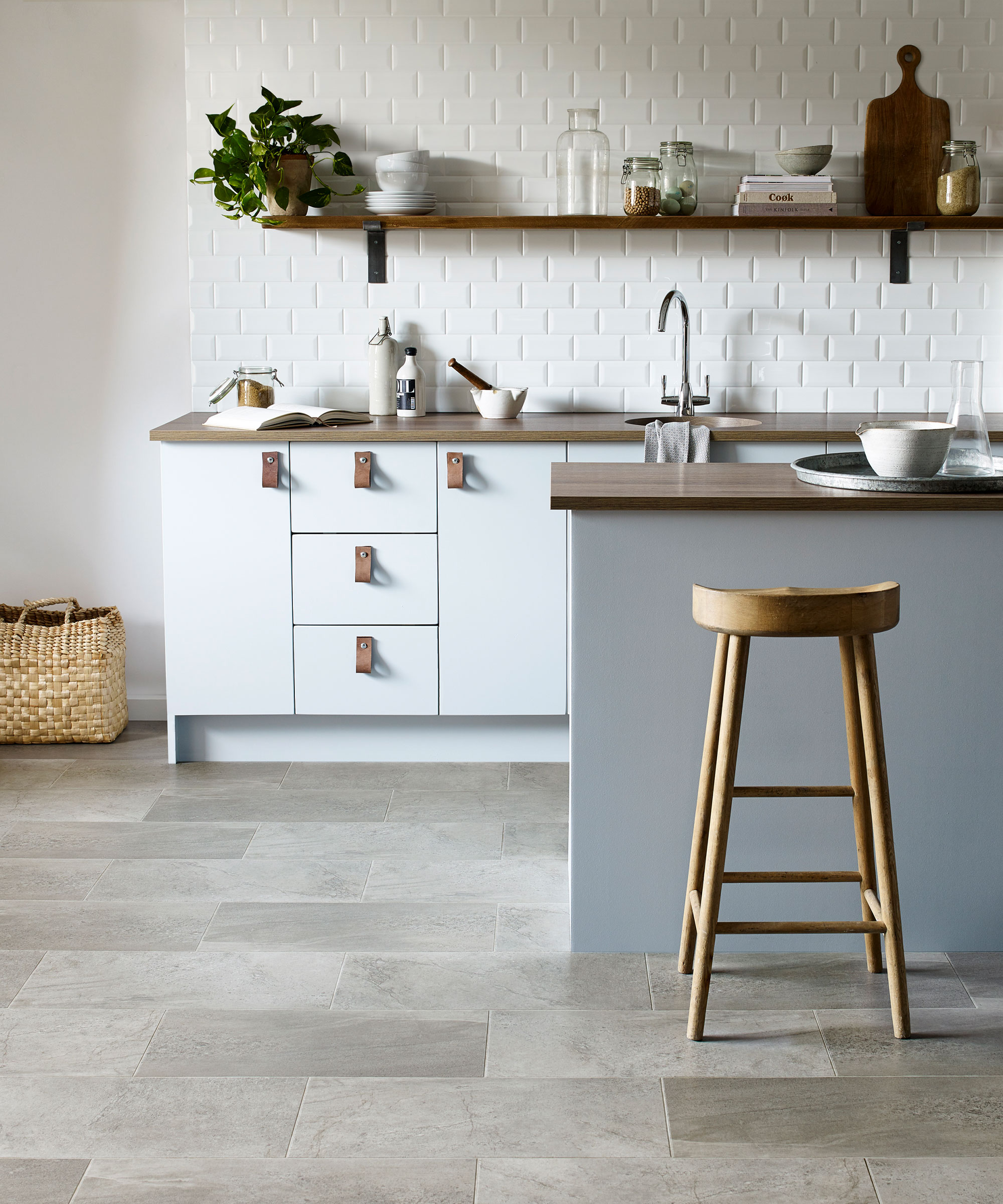
Using too much water when cleaning can warp your vinyl flooring
One of the major advantages of vinyl flooring is its durability against moisture, but that doesn’t mean it’s waterproof. Excessive water can seep into the seams, causing warping or lifting over time.
'The best way to clean vinyl floors is by using water sparingly,' says Paul. 'Vinyl is not as prone to water damage like when cleaning real wood or laminate, but that doesn’t mean you should use an overly wet mop. Excess water can work its way into seams, loosening the adhesive and causing curling or bumps.'
Paul recommends using a well-wrung-out microfiber mop and following this technique:
- Vacuum first to remove dust and debris.
- Mop in a figure-eight motion, starting at the edges and working toward the middle.
- Rinse and wring out the mop regularly to avoid spreading dirty water.
- Dry the floor with a soft towel to prevent excess moisture from sitting on the surface.
Or, an easier approach would be to invest in one of the best vacuum-mop combos. I've tested four of these wet floor cleaners myself and it's honestly a much faster and less physically demanding floor-cleaning approach when comparing mopping vs wet vacuuming.
These nifty appliances vacuum, mop and remove stains all at once, then leave the floor dry a few minutes later. The Tineco Floor One S7 Pro at Amazon is the fastest-drying out of the top models I've tested, andit would be ideal to avoid excessive moisture on your vinyl floors.
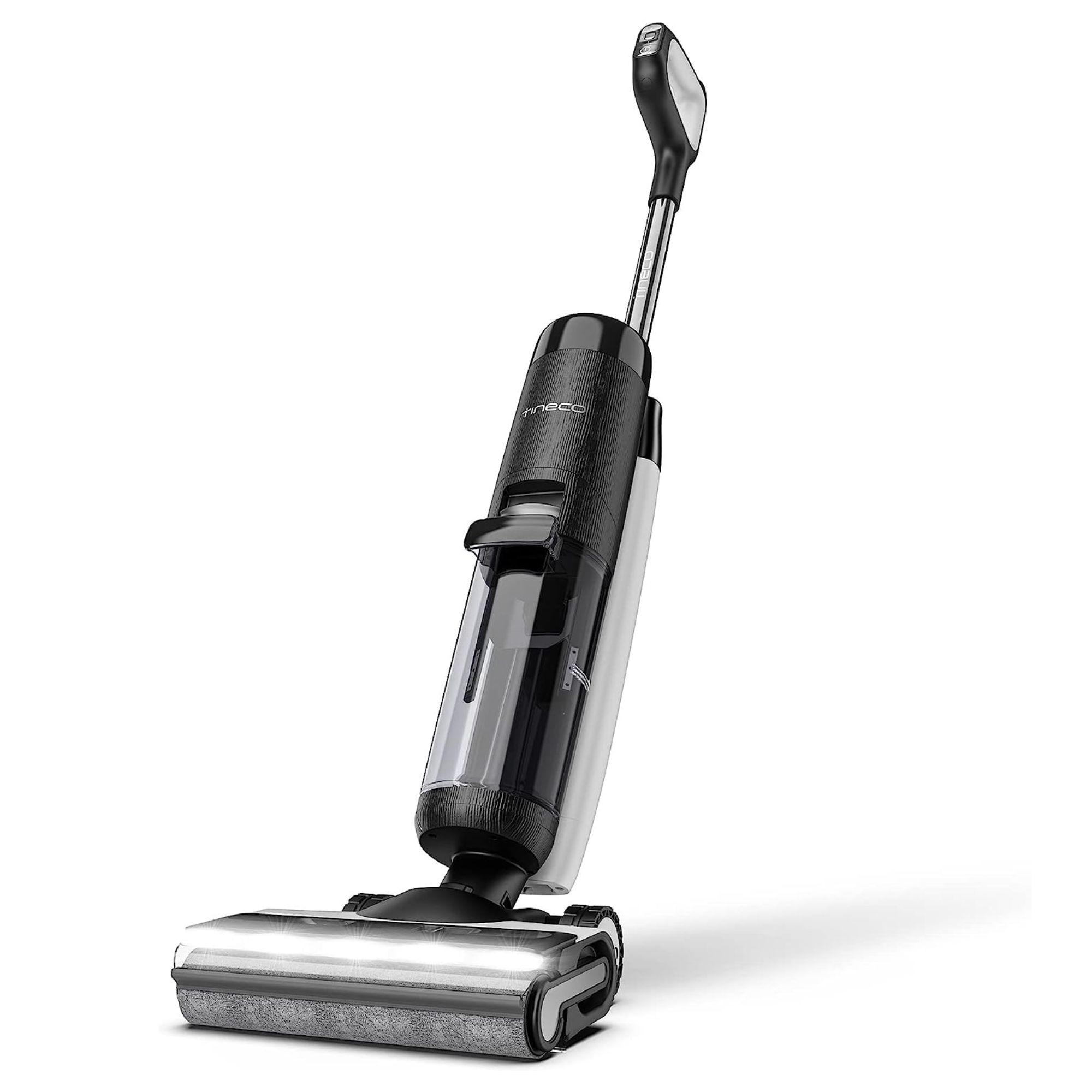
A powerful vacuum-mop that, on test, cleaned solid and liquid messes in seconds, leaving the floor dry and smelling fresh minutes later. Our full Tineco Floor One S7 Pro review shows videos from our testing sessions.
5. Not having the right vacuum
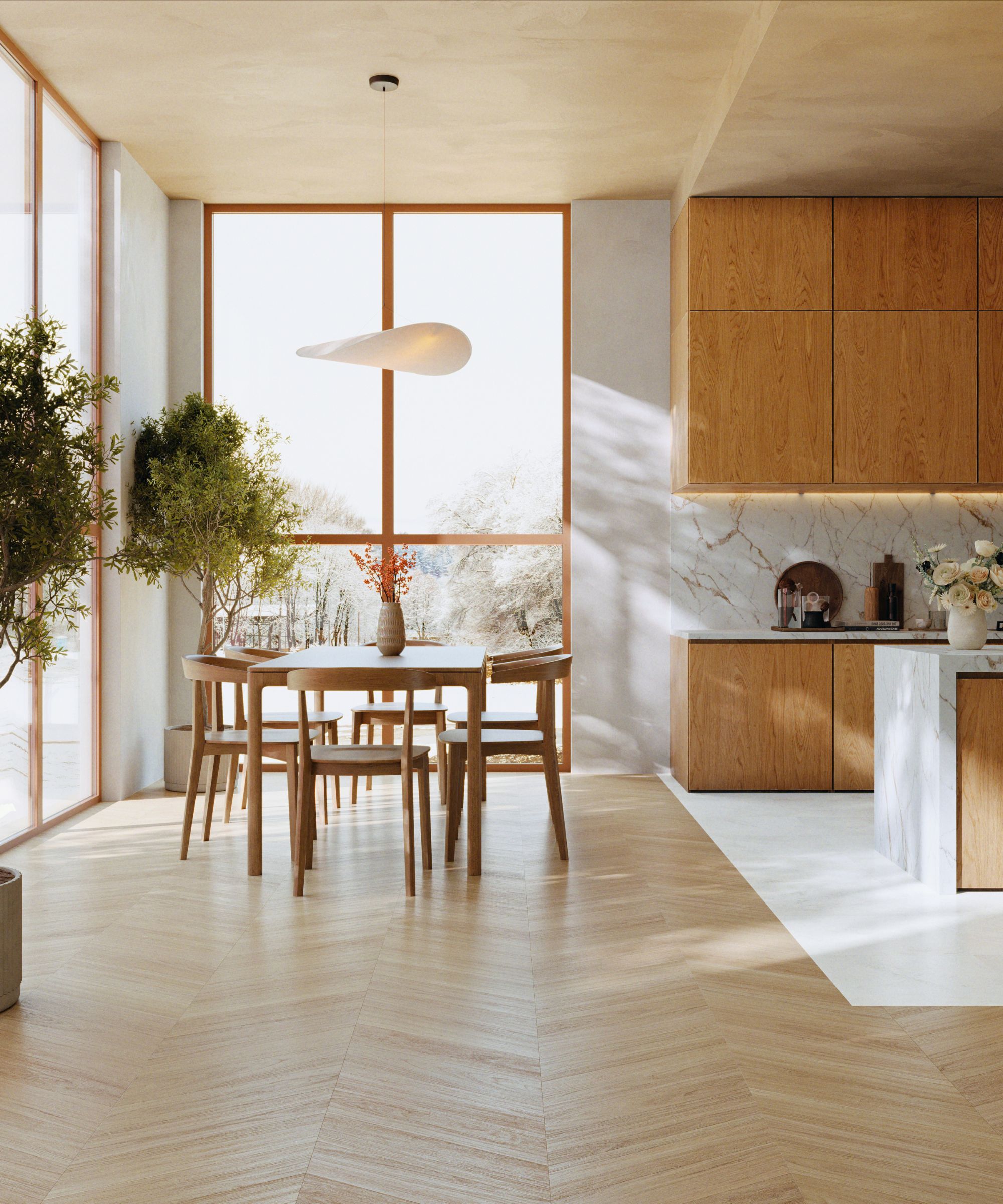
Not all vacuum floorheads are suitable for all surfaces. Knowing which one is right for your vinyl will help protect it in the longer term
Vacuuming is an excellent way to keep vinyl floors free from dirt and debris, but not all vacuums are safe to use. The best vacuums for carpet use rotating brushrolls with thick, rigid bristles that can extract stubborn dirt from carpet, but scratch vinyl surfaces.
'Yes, vacuums fitted with beating bars may aggressively scratch the floor and ultimately compromise its integrity,' explains Mark. 'This can lead to premature wear and a dull finish – a fact not well known to those unfamiliar with the intricacies of vinyl care.'
As hardwood is a more delicate surface, all of our tested picks of the best vacuums for hardwood floors are safe to use on vinyl floors. I'm a home tech editor and my current favorite is the vacuum I use in my own home on a weekly basis: the Dyson V12 Detect Slim. It has two separate floorheads for different surfaces, and the one designed for hard floors such as vinyl has a green laser that reveals invisible dust and a soft brushroll that can capture super-fine particles without scratching the surface.
Being able to seek out such small particles helps to protect the floor when it comes to mopping, too, as mopping before removing all the dirt can scratch the floor's surface.

I've been using the Dyson V12 Detect Slim in my home for almost a year, and it always vacuums dust, dirt and pet hair in just one or two passes. Its FluffyOptic floorhead is incredible on all hard floors, and safe to use on vinyl without any risk of scratching.
Next, discover whether luxury vinyl flooring is right for your home.
Sign up to the Homes & Gardens newsletter
Design expertise in your inbox – from inspiring decorating ideas and beautiful celebrity homes to practical gardening advice and shopping round-ups.

Dan is the Home Tech Editor for Homes & Gardens, covering all things cleaning, smart home, sound and air treatment across the Solved section. Having worked for Future PLC since July 2023, Dan was previously the Features Editor for Top Ten Reviews and looked after the wide variety of home and outdoor content across the site, but their writing about homes, gardens, tech and products started back in 2021 on brands like BBC Science Focus, YourHomeStyle and Gardens Illustrated.
They have spent more than 200 hours testing and reviewing vacuums for Homes & Gardens, and have even visited Dyson's engineering labs for the full low-down of the ins and outs of our trusty cleaners.
Dan has a BA in Philosophy and an MA in Magazine Journalism. Outside of work, you'll find them at gigs and art galleries, cycling somewhere scenic, or cooking up something good in the kitchen.
You must confirm your public display name before commenting
Please logout and then login again, you will then be prompted to enter your display name.
-
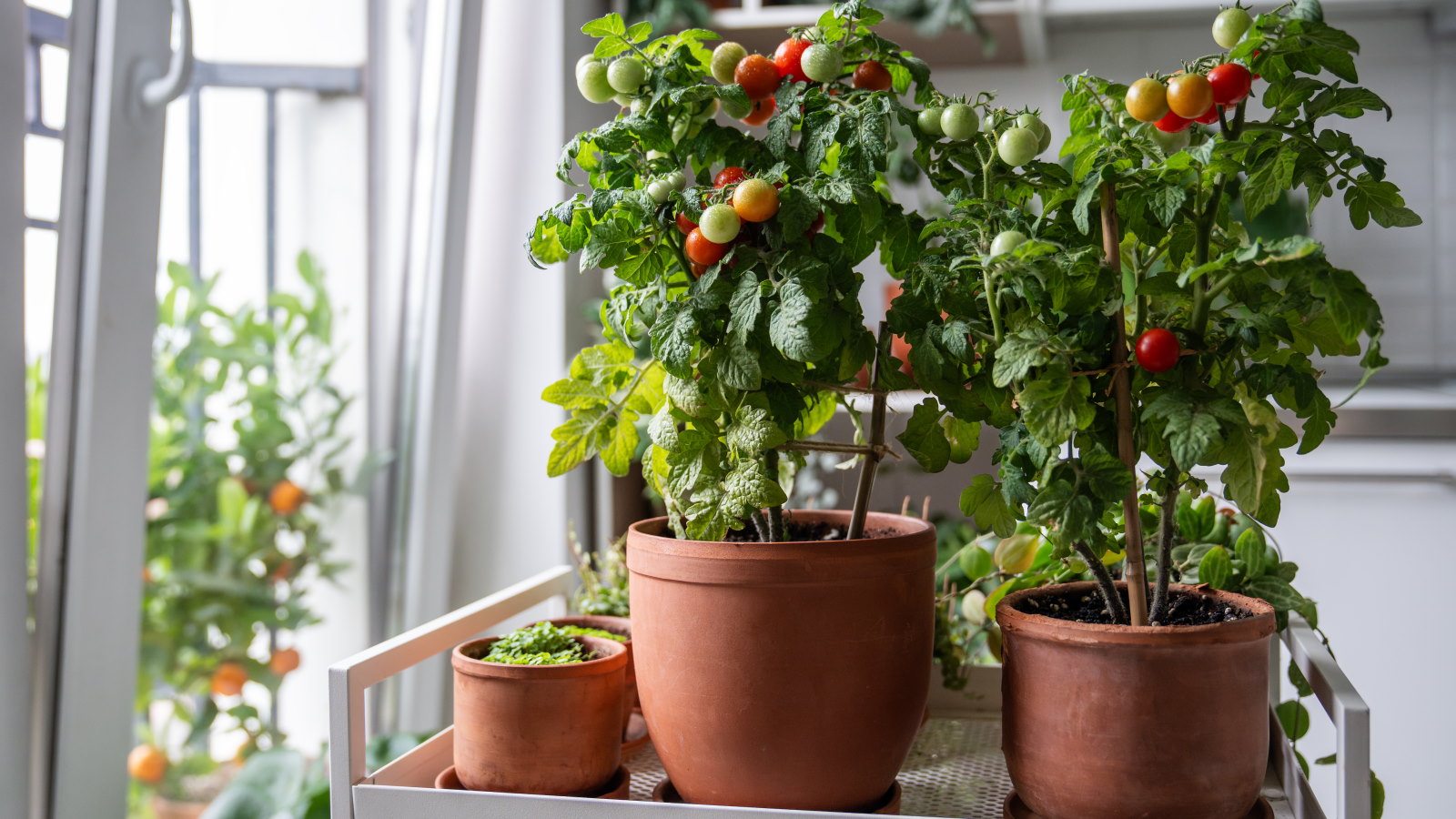 7 of the best tomatoes for growing in pots - expert growers pick their top varieties ideal for large harvests from containers
7 of the best tomatoes for growing in pots - expert growers pick their top varieties ideal for large harvests from containersYou can enjoy bumper homegrown harvests in small spaces
By Drew Swainston Published
-
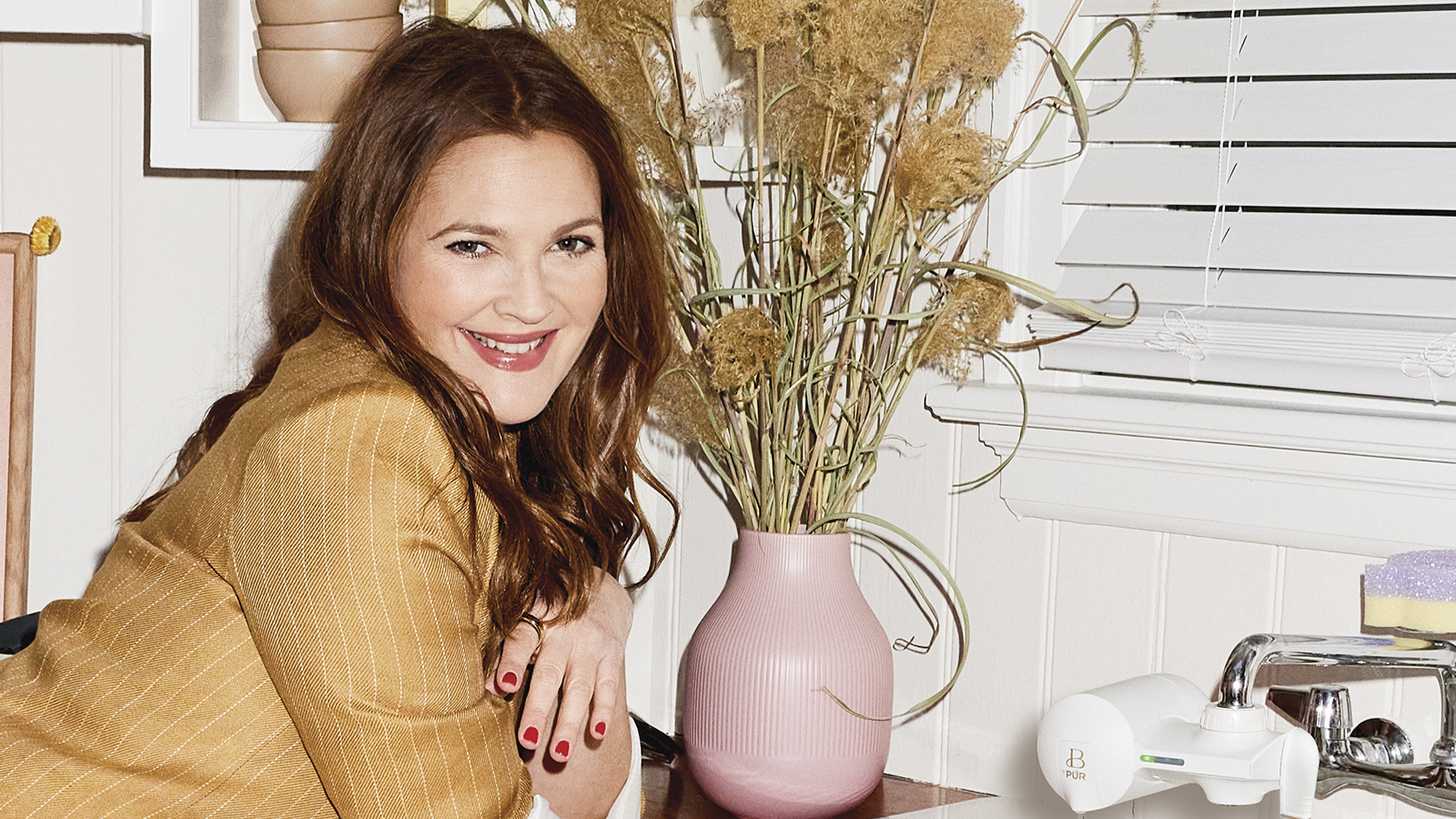 Drew Barrymore creates a 'balanced' kitchen in 4 easy steps – her rules will make your small, compact countertops feel beautiful
Drew Barrymore creates a 'balanced' kitchen in 4 easy steps – her rules will make your small, compact countertops feel beautifulDrew proves that with the right styling (and chic appliances), you can make even the smallest of kitchens look harmonious
By Hannah Ziegler Published
-
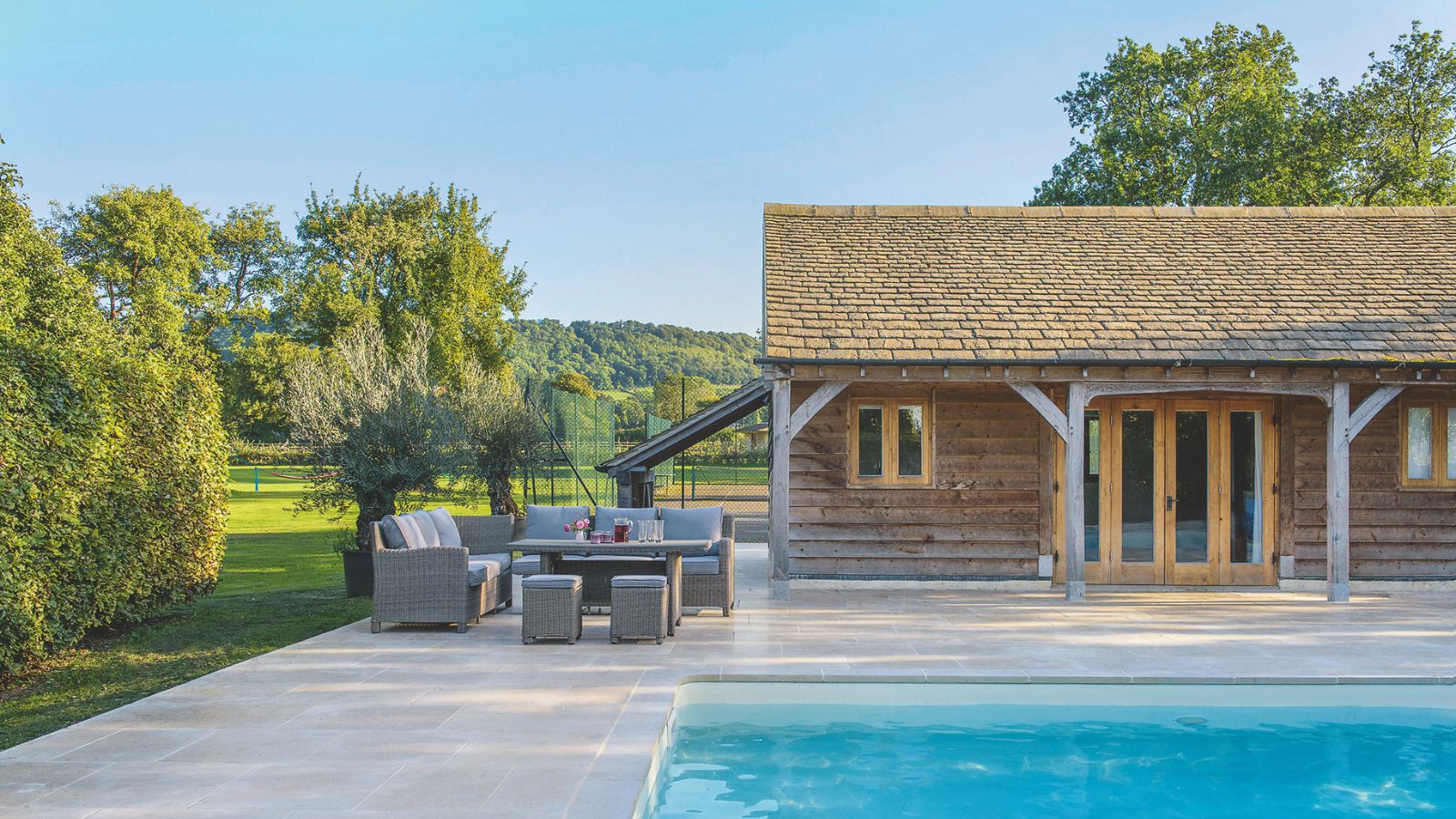 How to clean a patio – 6 different methods, and when you must use a chemical cleaning agent
How to clean a patio – 6 different methods, and when you must use a chemical cleaning agentFrom manual scrubbing, natural solutions or calling in the pros, industry experts reveal the benefits and considerations of each method
By Andy van Terheyden Published
-
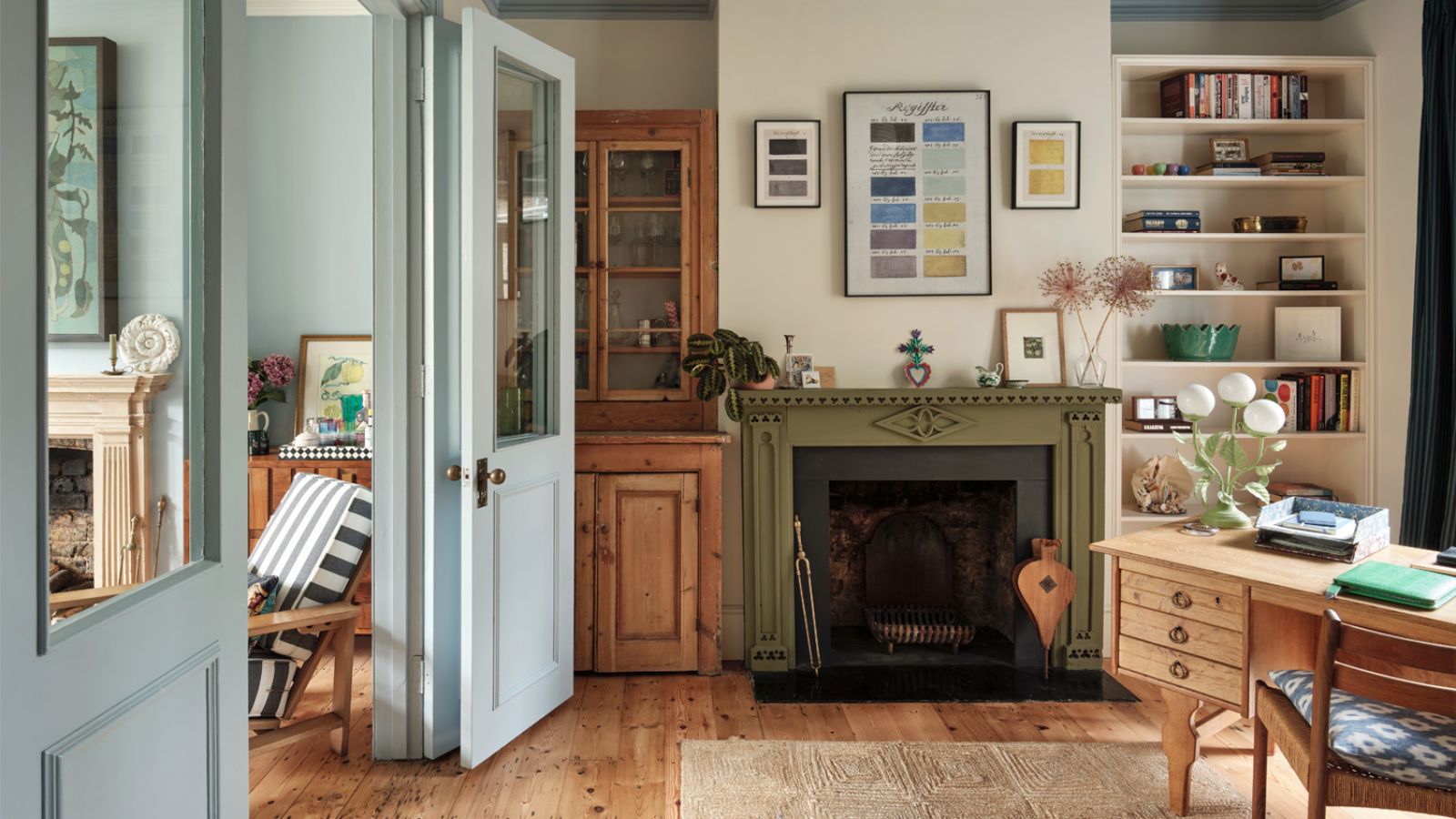 5 surprising but brilliant ways to clean with old socks – from perfectly buffing stainless steel to deterring pests naturally and more
5 surprising but brilliant ways to clean with old socks – from perfectly buffing stainless steel to deterring pests naturally and moreTackle dust in tricky corners, clean your mirrors and even banish bad odors with those rogue single socks
By Andy van Terheyden Published
-
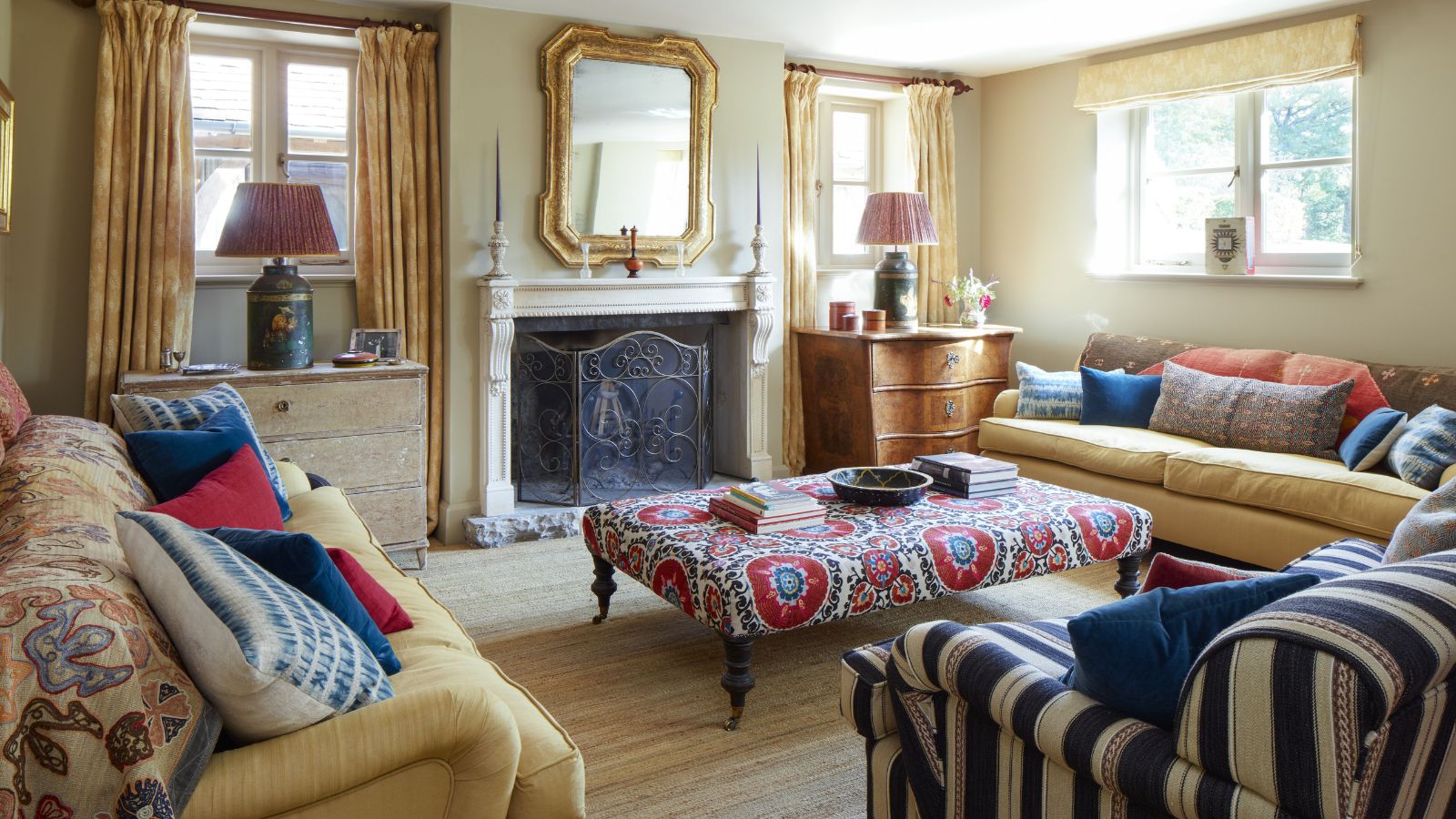 5 things people with clean upholstery always do – simple, quick and oh-so-effective
5 things people with clean upholstery always do – simple, quick and oh-so-effectiveEnsure your furnishing looks clean year-round with these expert tips
By Seraphina Di Mizzurati Published
-
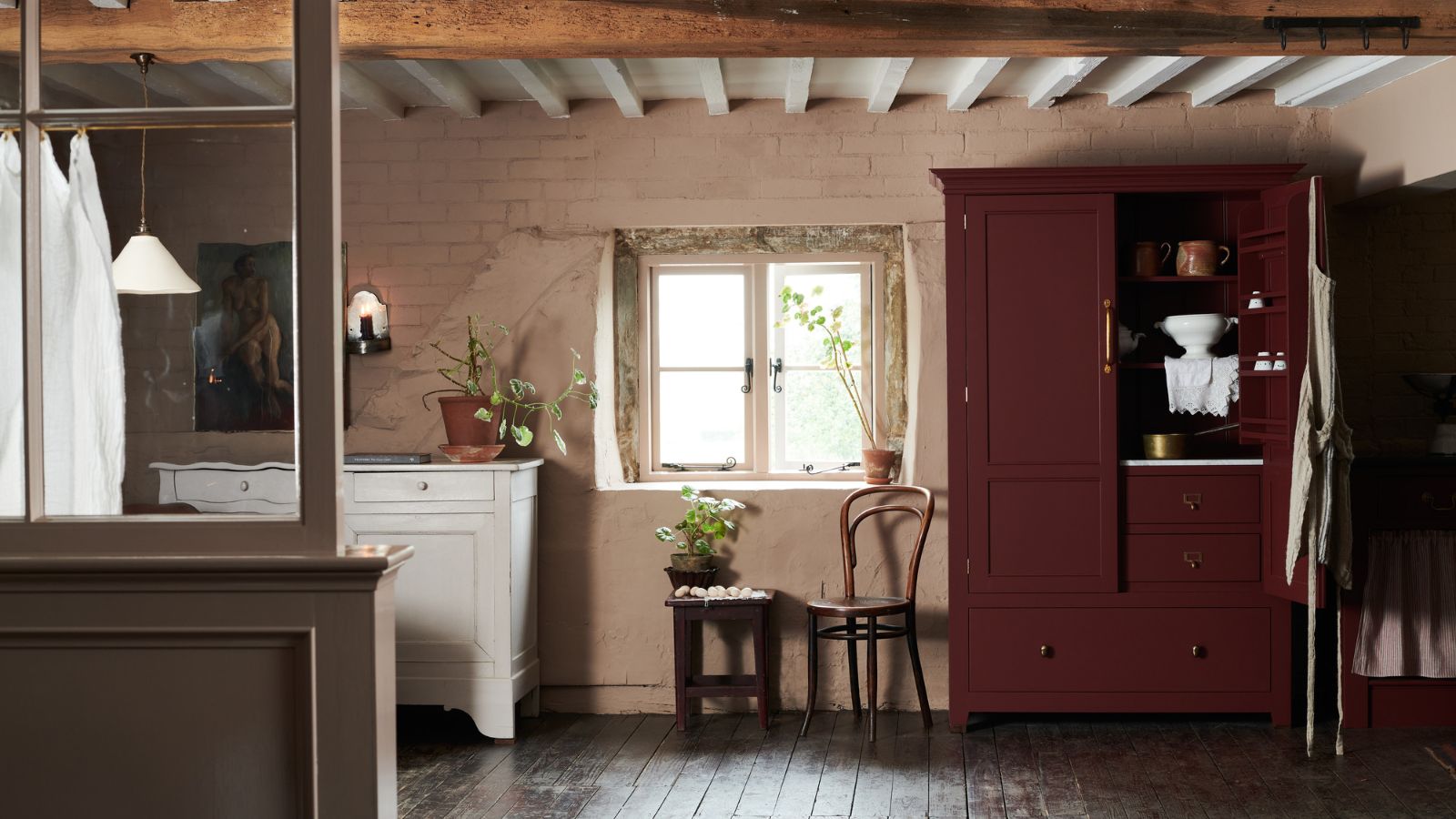 'Wick away the ick' – 6 things people with clean laundry rooms always do to make this hardworking space shine
'Wick away the ick' – 6 things people with clean laundry rooms always do to make this hardworking space shineThese tips on how to clean your laundry room will banish grime
By Seraphina Di Mizzurati Published
-
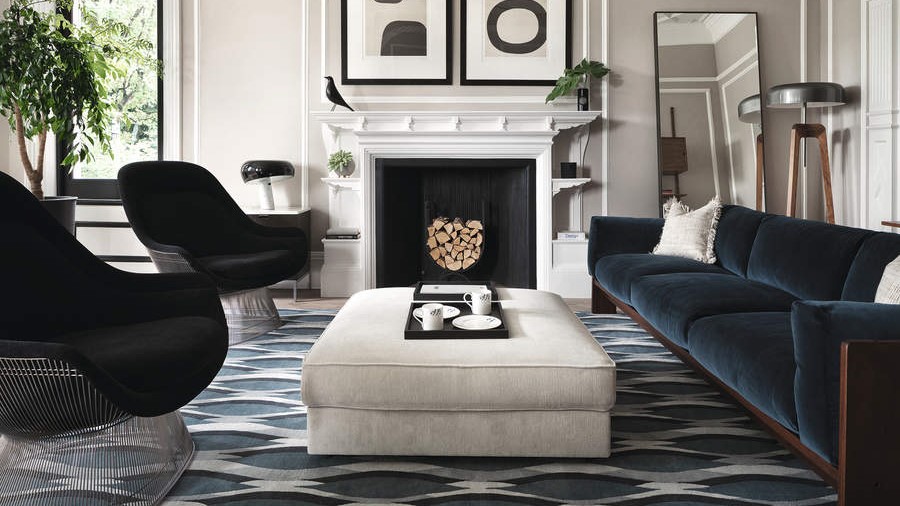 How safe are carpet deodorizers? As a seasoned vacuum tester, I urge you to try alternative methods
How safe are carpet deodorizers? As a seasoned vacuum tester, I urge you to try alternative methodsNatural cleaning is always the answer
By Dan Fauzi Published
-
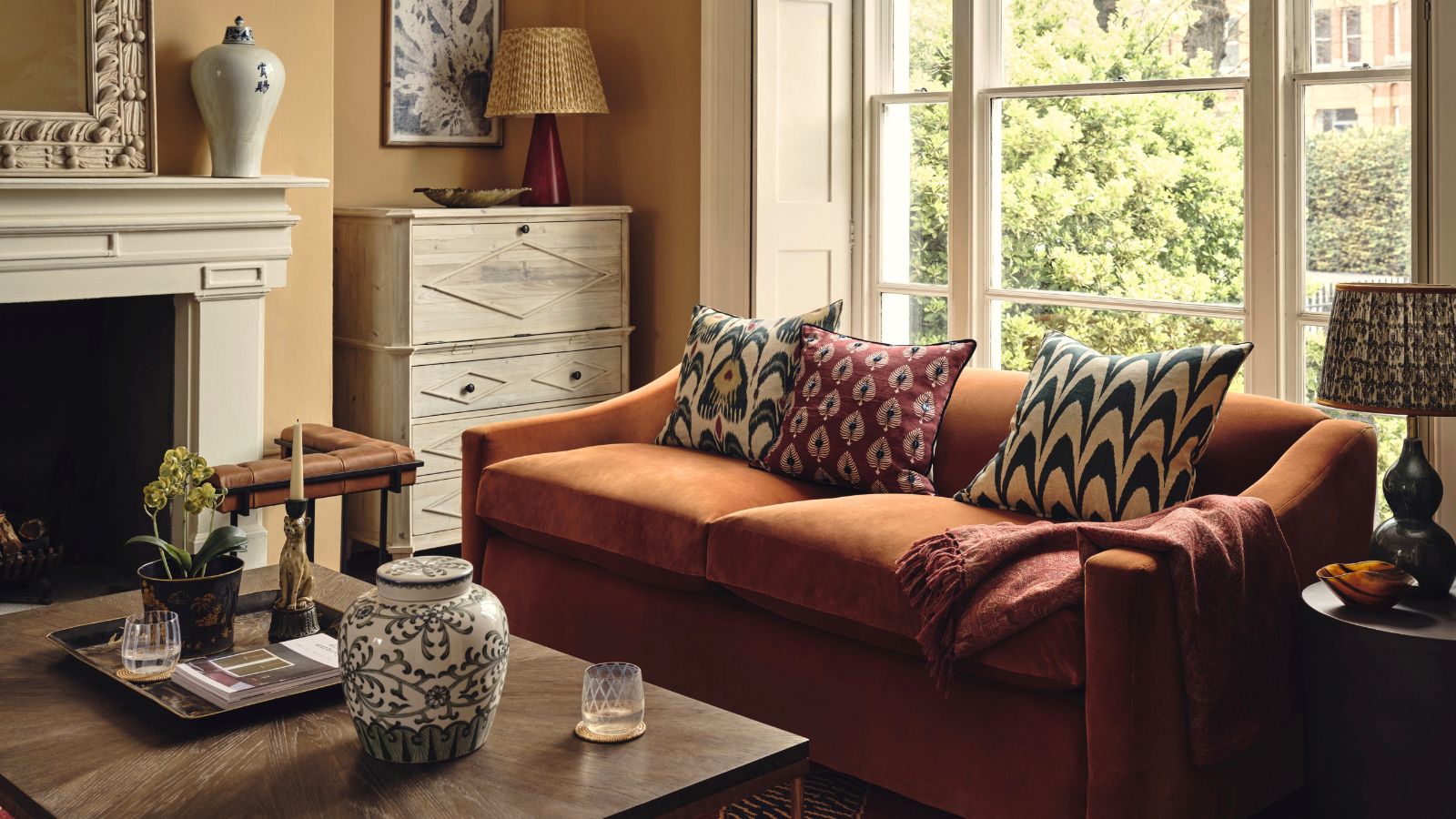 'The world will not end' – 5 cleaning habits to quit for a happier, easier life, and what to do instead
'The world will not end' – 5 cleaning habits to quit for a happier, easier life, and what to do insteadGet your home sparkling, minus the stress
By Ciéra Cree Published
-
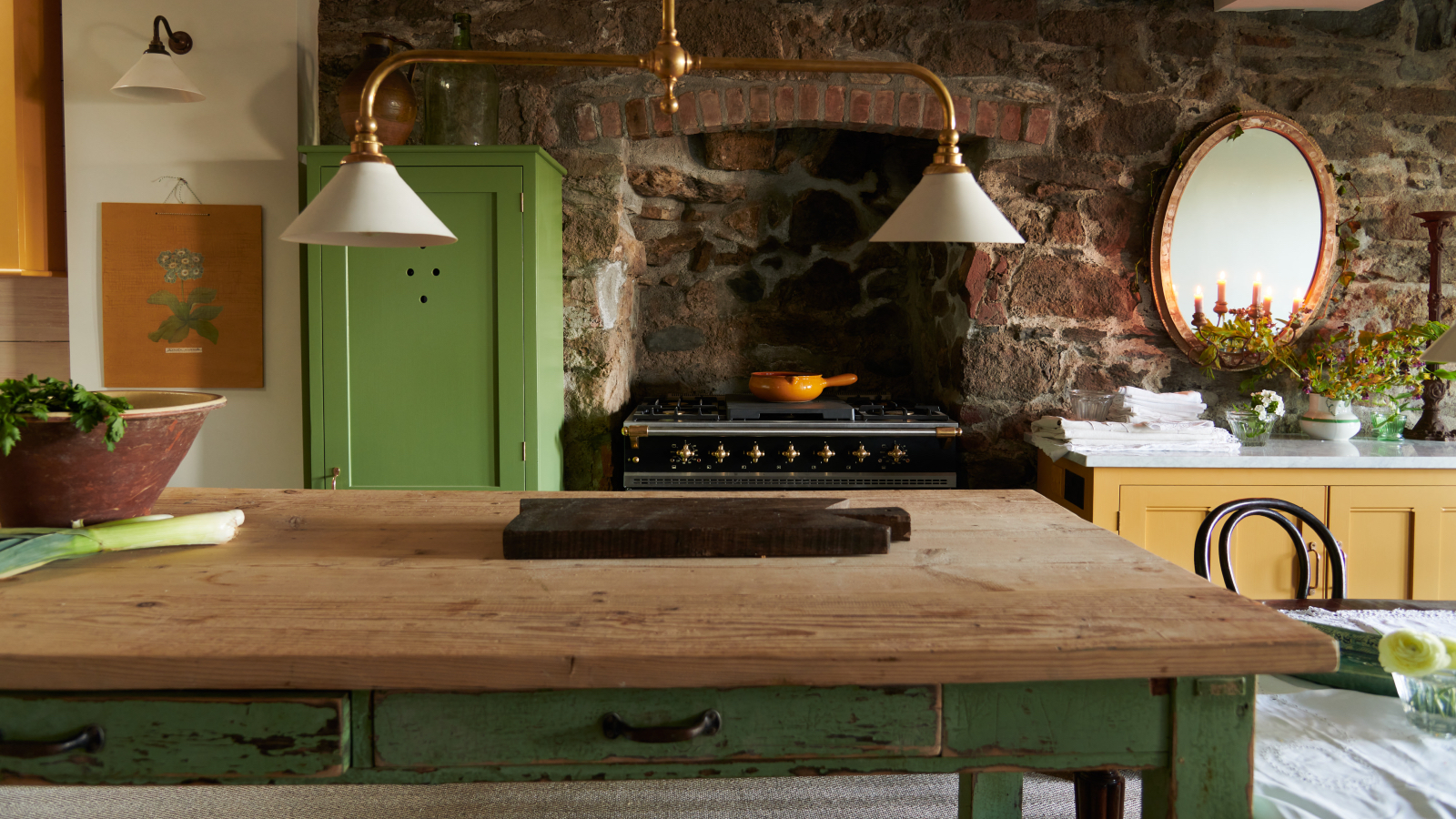 9 things you can clean with glycerin – this cheap and natural cleaner is perfect for indoor and outdoor use
9 things you can clean with glycerin – this cheap and natural cleaner is perfect for indoor and outdoor useFrom patio furniture to silverware, this hydrating and gentle cleaning agent will work miracles
By Ciéra Cree Published
-
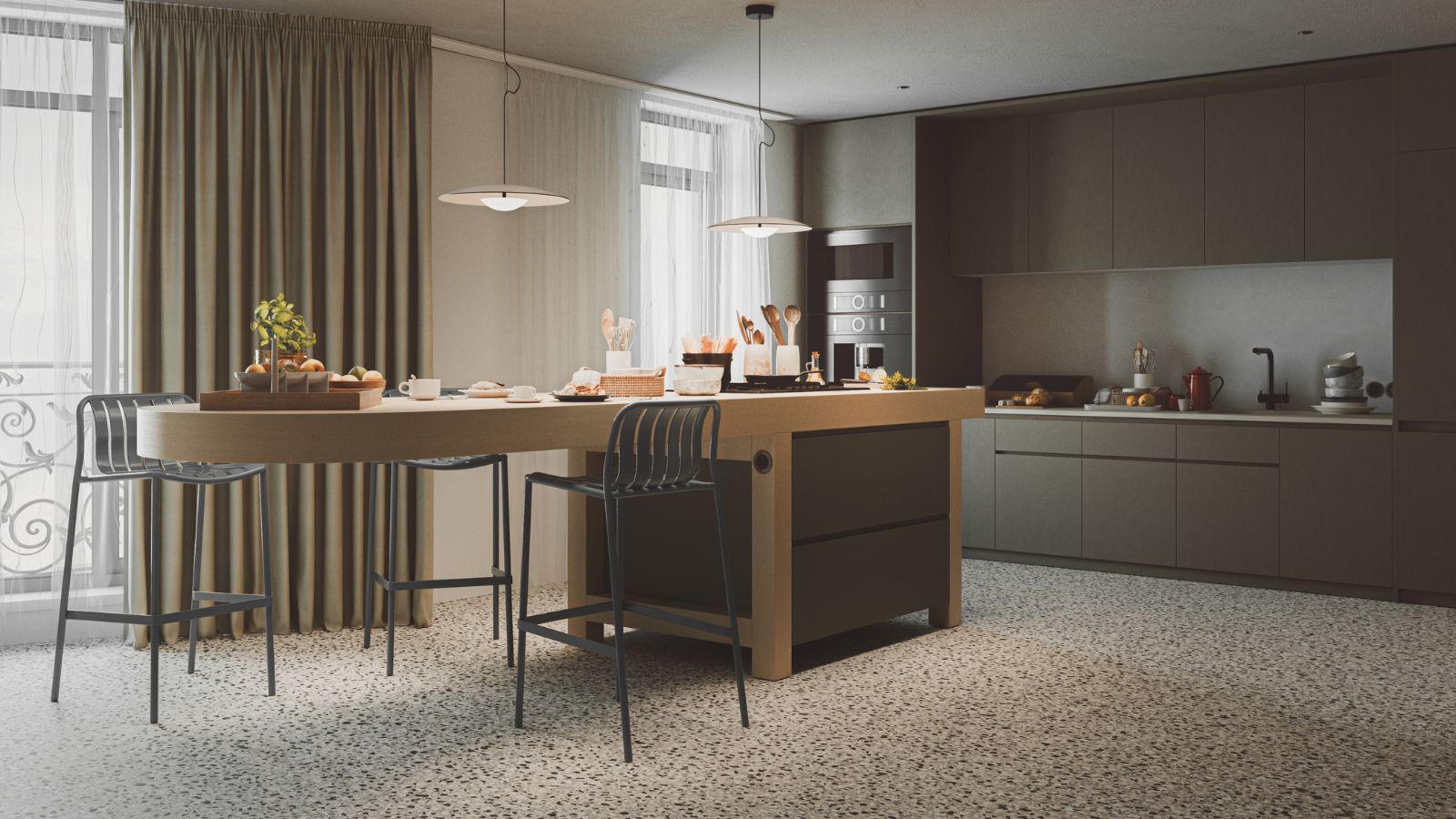 How to clean a terrazzo floor in 5 steps – expert tips to scrub, shine, and seal this sparkling floor finish
How to clean a terrazzo floor in 5 steps – expert tips to scrub, shine, and seal this sparkling floor finishAvoid damage and protect it's shine with these expert tricks
By Chiana Dickson Published